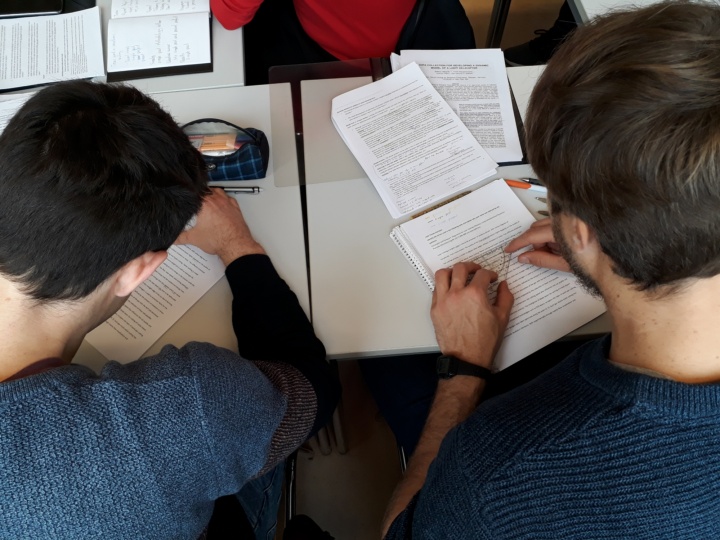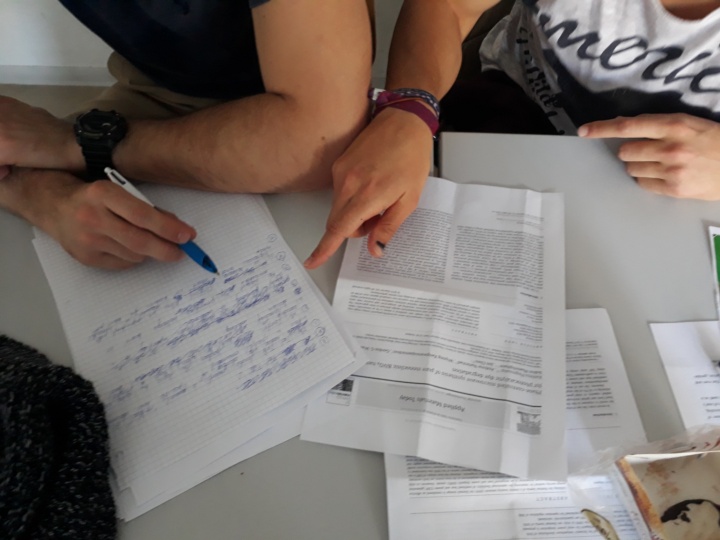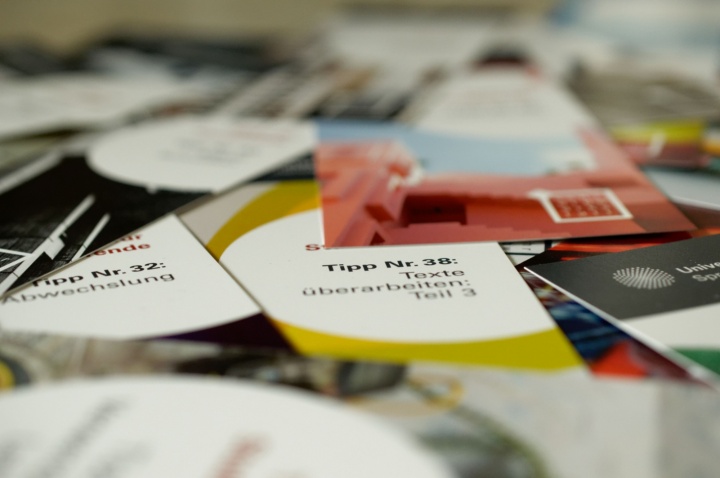Whether students, doctoral candidates, companions or teachers - everyone who already knows the Writing Center well, or wants to get to know it, is welcome.
The event will start at 2:00 p.m. with a welcome by the university leadership. This will be followed by small "workouts," writing tips, interactive boards, and writing experiments. In addition, the winners* of the writing contest will be crowned. "We would also like to take this opportunity to thank our founding members Barbara Burr, former director of the Language Center, and Dr. Angelika Gärtner, whose spirit and hard work laid the foundation for the diverse program - at that time in cooperation with the ZLW," says Lucy Blaney-Laible, director of the Language Center at the University of Stuttgart.
10 years of innovative teaching formats, at the cutting edge of writing research
For ten years now, the Writing Center has offered innovative teaching and learning formats designed to help students, doctoral candidates, and other members of the university community improve their academic writing skills and become confident and successful writers. In addition to seminars, which can also be recognized as a key qualification (FÜSQ), it also offers small topic-oriented workshops, individual writing consultations, and self-study materials. A variety of social media content completes the wide range of offerings. Through the interdisciplinary approach, participants look beyond their own discipline and benefit from the exchange with others about subject-specific methods. In addition to providing the tools of the trade, the Writing Center offerings teach participants how to implement and apply what they have learned in their own writing projects practically." Dr. Blaney-Laible is convinced: "Scientific writing can be learned, and writing competence develops primarily through doing. Self-critical and reflective practice - in a guided peer group - makes the master in the end."
Since the University of Stuttgart is internationally oriented, the courses are bilingual. "Here we benefit from the location of the Writing Center in the Language Center," says Blaney-Laible. "The close cooperation with the entire team there allows us to respond flexibly to the needs of students and doctoral candidates."
The Writing Center also offers customized services for institutes and faculties, for working groups, clusters of excellence or even teaching staff. "We make many things possible and can complement subject teaching with our know-how and expertise. The teachers, students and doctoral candidates benefit from the cooperation in teaching and consulting, such as in co-teaching." explains Blaney-Laible.
The focus of the Writing Center is on helping students to help themselves: In addition to curricular offerings, participants learn how to divide the complex writing process into steps, which cognitive mechanisms influence it, and how the ideas in the head can make it onto the paper. In the non-directive consultation, those seeking advice receive feedback on up to three pages of text, which they can then independently apply to the rest of their project. "We find that participants benefit greatly from this personalized attention," says Blaney-Laible. "This type of service clearly sets the Writing Center apart from offerings on the open market."
National and international network
The library of the University of Stuttgart has accompanied the Writing Center since the very beginning. The experts there provide supplementary training or expand the offering through joint formats. One example of this successful cooperation is the "Long Night of Writing" in March of this year. The event, which was organized with other institutions of the TU-9 universities, was a complete success.
Further cooperation also takes place with networks such as the "Gesellschaft für Schreibdidaktik und Schreibforschung" (Society for Writing Didactics and Writing Research) or the "Wissenschaftlicher Arbeitskreis MINT-Schreiben" (Scientific Working Group on STEM Writing). There, current research results are evaluated and further developed and the reference back to the learning environment is established. There is also a particularly good on-going cooperation with the writing centers of other universities in Baden-Württemberg and Switzerland. The founding meeting was initiated in 2016 by the team of the Stuttgart Writing Center. Since then, the network meets once or twice per year at various locations or online, where it exchanges practical working methods and works on joint projects. In 2023, the baton will return to the University of Stuttgart.
Looking to the future
The Writing Center team has a lot planned for the next few years: "As a language center, we are naturally strongly committed to internationalization, and that also applies to the Writing Workshop," Blaney-Laible tells us. "We are therefore going to greatly expand what we offer for students as well as doctoral students." The new content is to be included as OER material in the pool of didactic writing offerings. This will then make them available to all subject teachers and at the same time strengthen networking. "The Writing Workshop team is looking forward to the next 10 years and all that we will facilitate with the writing, teaching, and researching university community!"




